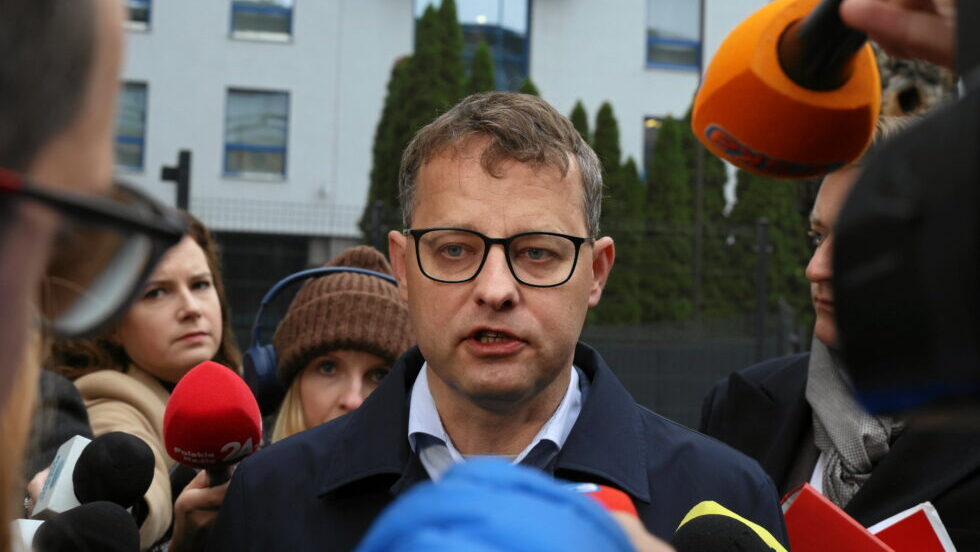Balázs Hankó serves as Minister of Culture and Innovation in the Hungarian government, a role in which he is responsible for the implementation and development of Hungary’s world-renowned family policy. He delivered the keynote address at a two-day conference on family formation, organized by the Budapest-based conservative think tank, the Danube Institute. Following his speech, he gave a brief interview to Hungarian Conservative.
***
Hungarian family policy is increasingly recognized across the world, from East to West, as more and more countries seek ways to adopt similar measures within their own policy frameworks. But is this a policy that can be exported? Could these measures prove successful in countries located far to the east or west of Hungary?
Governments that stand with their nations treat family policy as a priority. Those that stand on the side of normality also consider it paramount. This is precisely what the Hungarian government has been doing since 2010—and continues to do—despite messages from Brussels suggesting otherwise and urging us to support migration instead to tackle certain demographic issues.
Let me tell you a very clear example of what is happening. The Geneva Consensus, which we helped establish in cooperation with the previous Trump administration, is focused on the protection of family values. As soon as President Trump assumed office, within 120 hours, he reinstated the United States into the Geneva Consensus. At the very same time, one of the European Union’s key member states, Poland, withdrew from it. The contrast between normality and abnormality is now fully visible.
In other words, those countries that are thinking about their future are looking to Hungarian family policy as a model. The fundamental pillars of Hungarian family policy are the protection of family values and the financial support for families raising children.
In addition to the extensive financial support and numerous incentives provided to families, there is also a cultural dimension to Hungary’s family policy—one that is just as important as the measures mentioned above.
One point must be clarified: family policy is not the same as demography. As I have said, family policy means two things. First, standing up for the values of the traditional family; and second, striving to ensure financial security for families raising children. From that point on, it is up to each individual to decide whether to have one, two, three, four or even more children. What we must see, however, is that the survival of the economy and of society can only be ensured through families who choose to have children.
In this regard, Hungary has made remarkable progress. In 2010 our fertility rate was the lowest in the European Union. By 2023 we had climbed to third place—though we could arguably be considered first. In France, for instance, one in every four births is to a family with a migrant background, while Bulgaria attained first place by including births that occurred outside its national borders in the statistics.
‘The survival of the economy and of society can only be ensured through families who choose to have children’
This is how Hungarian family policy has made significant strides. In fact, thanks to the family-oriented turnaround since 2010, 200,000 more children have been born than would have been otherwise. Nevertheless, the burdens of the past continue to weigh heavily on us. As a result of the 1995 Bokros package—an austerity programme introduced by the Socialist government at the time—there are now 322,000 fewer women of childbearing age than there would have been. Had they remained, our annual number of births would currently stand at around 100,000. What has allowed us to sustain our birth figures, despite the shrinking number of women of childbearing age, is the increase in the fertility rate.
As part of its family policy, Hungary is currently implementing Europe’s largest tax reduction programme. What impact does the government expect from this initiative?
The financial security of families—and of mothers in particular—is strengthening consistently. Let us take a closer look. Thanks to the personal income tax exemption for mothers under 30, and the doubling of the family tax allowance, these mothers are able to retain no less than HUF 1.5 million annually. For a mother of two under the age of 40, the income tax exemption and family allowance together amount to HUF 2.5 million per year. For mothers of three children, the figure reaches HUF 3.6 million.
From 2026 onwards half a million mothers will enjoy personal income tax exemption for life. From 2029 that number will rise to one million. This is what we offer, this is our message: families can count on us.
Related articles:








